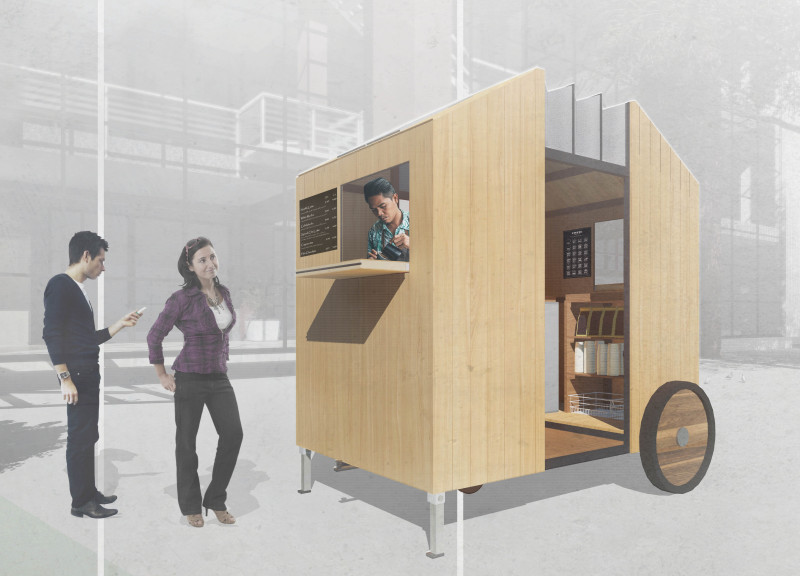5 key facts about this project
The Coffee Cart is a mobile unit designed for urban areas, aimed at enhancing the experience of both baristas and customers. The structure focuses on efficient coffee preparation, showcasing the role of the barista in creating beverages. The design allows for a smooth workflow, guiding the process from taking orders to serving coffee within a compact and practical space.
Functional Design
The layout of the Coffee Cart is crafted for ease of use. Orders are taken at one window, while coffee is served at another. This setup reduces unnecessary movement, enabling the barista to work efficiently. The design makes the most of its small dimensions, ensuring that each task can be completed in a logical sequence.
Material Composition
A lightweight steel frame forms the backbone of the cart. This choice of material ensures strength while keeping the unit portable. The facade features timber, which adds warmth and connects the cart to the natural essence of coffee. The materials work together to create a welcoming environment for customers.
User Interaction
Interaction between baristas and customers is a key aspect of the design. Foldable windows promote direct communication, fostering a sense of community. Additionally, the retractable canvas roof allows for service in various weather conditions, maintaining comfort and accessibility for both baristas and patrons.
Sustainability Considerations
Incorporating photovoltaic panels reflects a thoughtful approach to sustainability. This energy-efficient feature supports the functioning of the cart while minimizing its environmental footprint. Such considerations show a commitment to operating responsibly within urban settings.
The Coffee Cart features practical design elements, such as easy-to-use windows and a combined use of durable materials, creating a functional space that promotes the art of coffee making.


























